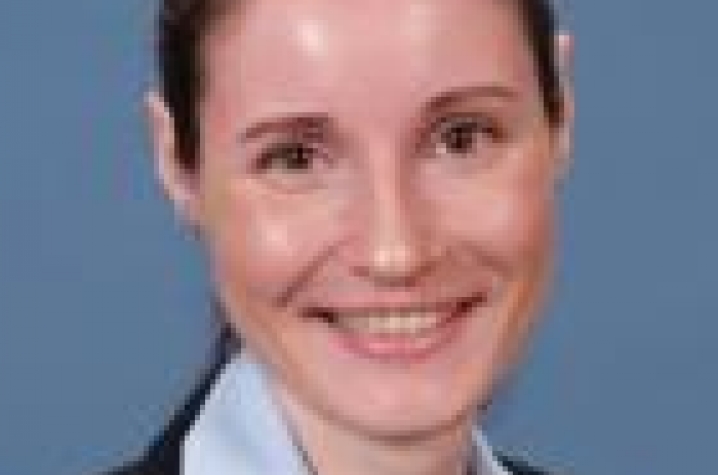Sanders-Brown Laboratories Showcase Work on Alzheimer’s Disease, Traumatic Brain Injury
LEXINGTON, Ky. (March 9, 2016) — The laboratories of University of Kentucky researchers Anika Hartz, Ph.D., and Christopher Norris, Ph.D., published research studying the pathologies of Alzheimer’s disease and traumatic brain injury (TBI), respectively, in the most recent issue of The Journal of Neuroscience.
Both Alzheimer’s disease and TBI impair patients’ memory and cognitive abilities, but they have different causes. Researchers and doctors do not yet know what causes Alzheimer’s disease, but they do know the risk of developing the disease increases with age and that toxic amyloid-β proteins clump together and accumulate in the brains of patients with the disease. TBI, on the other hand, can affect individuals regardless of their age and has several known causes. According to the Centers for Disease Control and Prevention (CDC), the effects of TBI may be temporary or permanent, depending on the severity of head injury. Falls, assault, and vehicle collisions can all result in TBI.
While studying Alzheimer’s disease, the Hartz laboratory discovered that amyloid-β proteins interfere with another protein known as P-glycoprotein (P-gp). P-gp helps clear amyloid-β from the brain, but amyloid-β in turn can prevent P-gp from doing so. This tug-of-war ultimately causes the toxic amyloid-β to accumulate faster in the brain. Hartz hopes future drug treatments could help boost P-gp activity so the brain can better clear toxic amyloid-β proteins during Alzheimer’s disease.
The Norris laboratory discovered high levels of a protein known as Nuclear Factor of Activated T cells (NFAT) in brain astroglial cells. NFAT activation appears to negate the protective functions of astroglia, causing them to become harmful during TBI. When the Norris laboratory blocked NFAT activity, they observed preservation of neuronal connectivity following brain injury in an animal model. This work suggests future drugs targeting NFAT could help patients keep or recover their cognitive function after sustaining a head injury.
Both Hartz and Norris are associate professors at the University of Kentucky's Sanders-Brown Center on Aging.
"Together, Alzheimer’s disease and TBI affect several million Americans each year. Understanding how these disorders lead to brain dysfunction may ultimately allow researchers and physicians to develop new therapies to halt or reverse the damaging effects and improve quality of life," said Linda Van Eldik, Ph.D., director of the University of Kentucky's Sanders-Brown Center on Aging. "These studies, published in the most recent issue of The Journal of Neuroscience, showcase the valuable work being done by our labs to help fight brain injury and degenerative diseases."
The UK Sanders-Brown Center on Aging (SBCoA) has been conducting research on Alzheimer’s disease, stroke and other age-related disease for more than 35 years. In 1985, the Center was one of the first 10 National Institutes of Health-funded Alzheimer’s Disease Research Centers. Today, SBCoA is an internationally prestigious research center, identifying mechanisms for healthy brain aging and age-related diseases and exploring treatments that may slow down, cure, and/or prevent these diseases entirely.
The work in these studies was funded in part by grants from the National Institutes of Health, the Kentucky Spinal Cord and Head Injury Research trust, the PhRMA Foundation, the Irene and Eric Simon Brain Research Foundation, and the Hazel Embry Research Trust and does not necessarily reflect the views of those institutions and foundations.
UK is the University for Kentucky. At UK, we are educating more students, treating more patients with complex illnesses and conducting more research and service than at any time in our 150-year history. To read more about the UK story and how you can support continued investment in your university and the Commonwealth, go to: uky.edu/uk4ky. #uk4ky #seeblue
Media Contact: Laura Dawahare, Laura.Dawahare@uky.edu, (859) 257-5307






